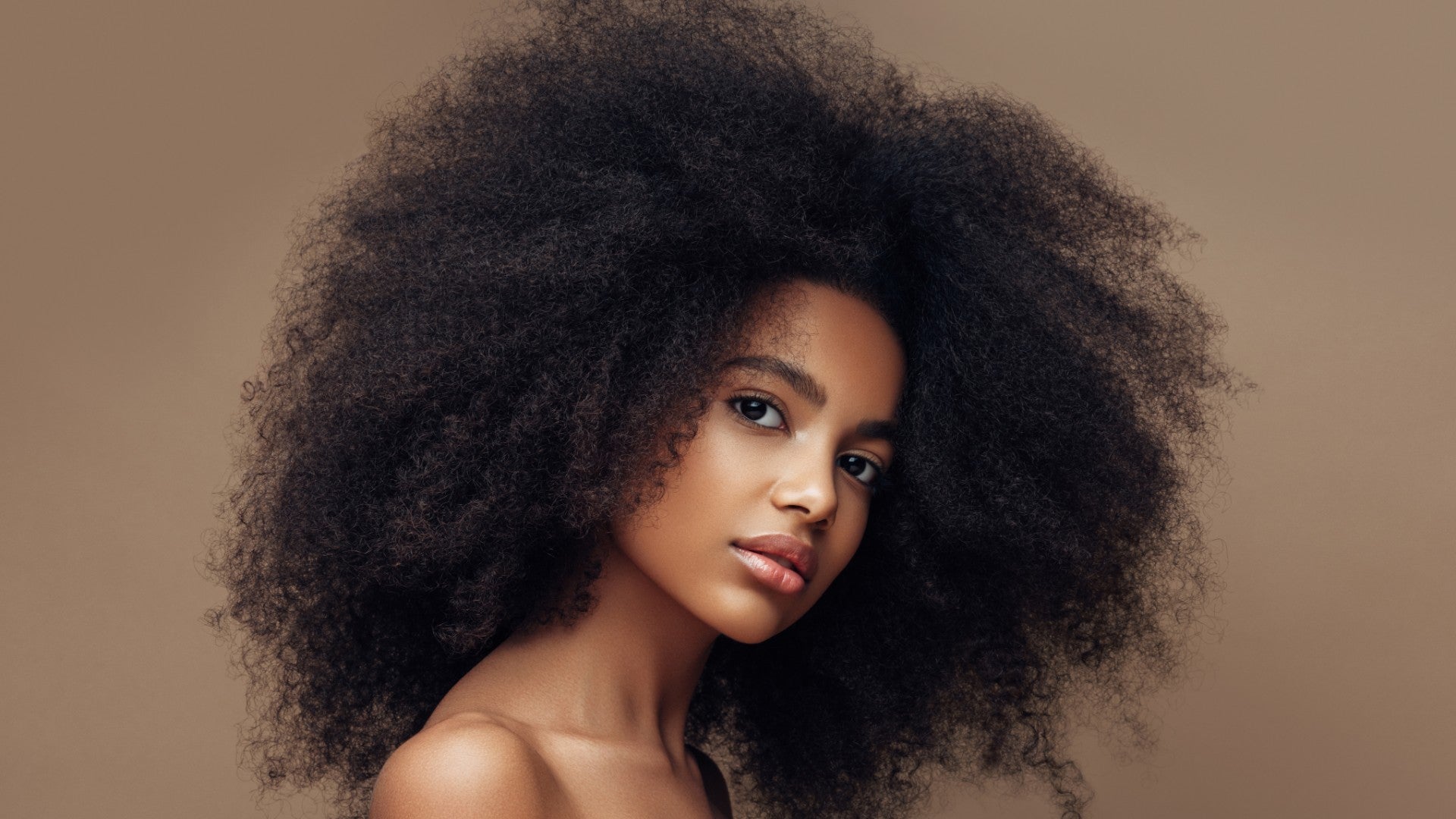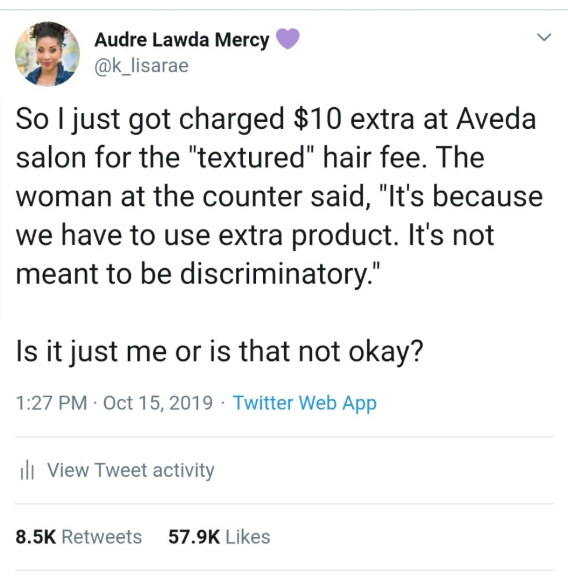
Hair discrimination isn’t a new phenomenon for author and educator Khalisa Rae Thompson. But her visit to an Aveda salon in Raleigh, North Carolina, left her flabbergasted last week after she was charged a “textured” fee as the result of allegedly requiring more products to wash and style her natural hair.
At check-out, Thompson confronted the salon clerk about the issue and was advised that the charge wasn’t meant to be discriminatory — but inequity certainly appears to be at play .
Thompson, who has been a client of the salon chain for over 15 years and has visited over four locations (where she gets her hair done by Black hairstylists), said there’s never been a tax on her textured tresses. This was her first time at this location, and a tweet about the recent incident has sparked a larger conversation.

“White folks are openly admitting that they’ve gone to not only other salons, but they’ve gone to Aveda, and this has never happened to them,” Thompson told ESSENCE. “What struck me the most was the fact that White people were like, ‘This has never happened to me before, and that’s not okay.’ That’s where I think we have a bigger conversation. That’s what makes this much bigger than the black tax and pink tag,” said Thompson. “Aveda and other salons need to be held accountable.”
This year, legislation was passed to ban natural hair discrimination in several states, “but I think the danger is that oftentimes we rest too heavily on the law and we don’t speak up as individuals on a local level,” said Thompson. “And so, businesses can get away with what Aveda and so many other businesses are getting away with.”
“I want to put pressure on black and brown folks, but also our allies to start speaking up. [I want them to] start asking questions. ” How come I’m a white woman, and I never get charged for my long hair or curly hair.”
To reconcile the recent events, Thompson says Aveda Global offered to set her up with complimentary services at the Aveda in her city where they have a more diverse staff. But Thompson says if she chooses to go back to another Aveda “it will be a salon that does not have any discriminatory fees associated with it at all, and that is primarily run by folks of color. Not just having folks of color stylists, but who are at the helm.”
ESSENCE has reached out to Aveda for a comment, but has yet receive a response from the brand.
“I think we need to put more pressure on those corporations to put their money where their mouth is and to show us by having the utmost excellent, fair practices that are inclusive, that are anti-racist, and that are anti-discriminatory, especially if you’re saying you cater to people who [have] natural [hair],” said Thompson.
We’re in a day and age where activism inspires action. Let’s raise our voices to champion inclusivity in the beauty industry, and for curls of all kind.